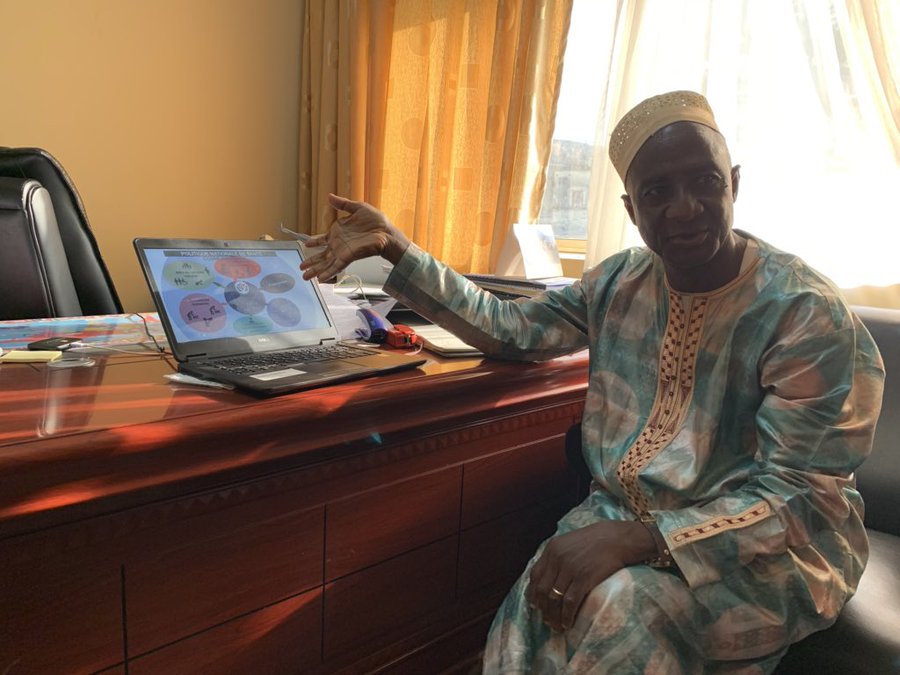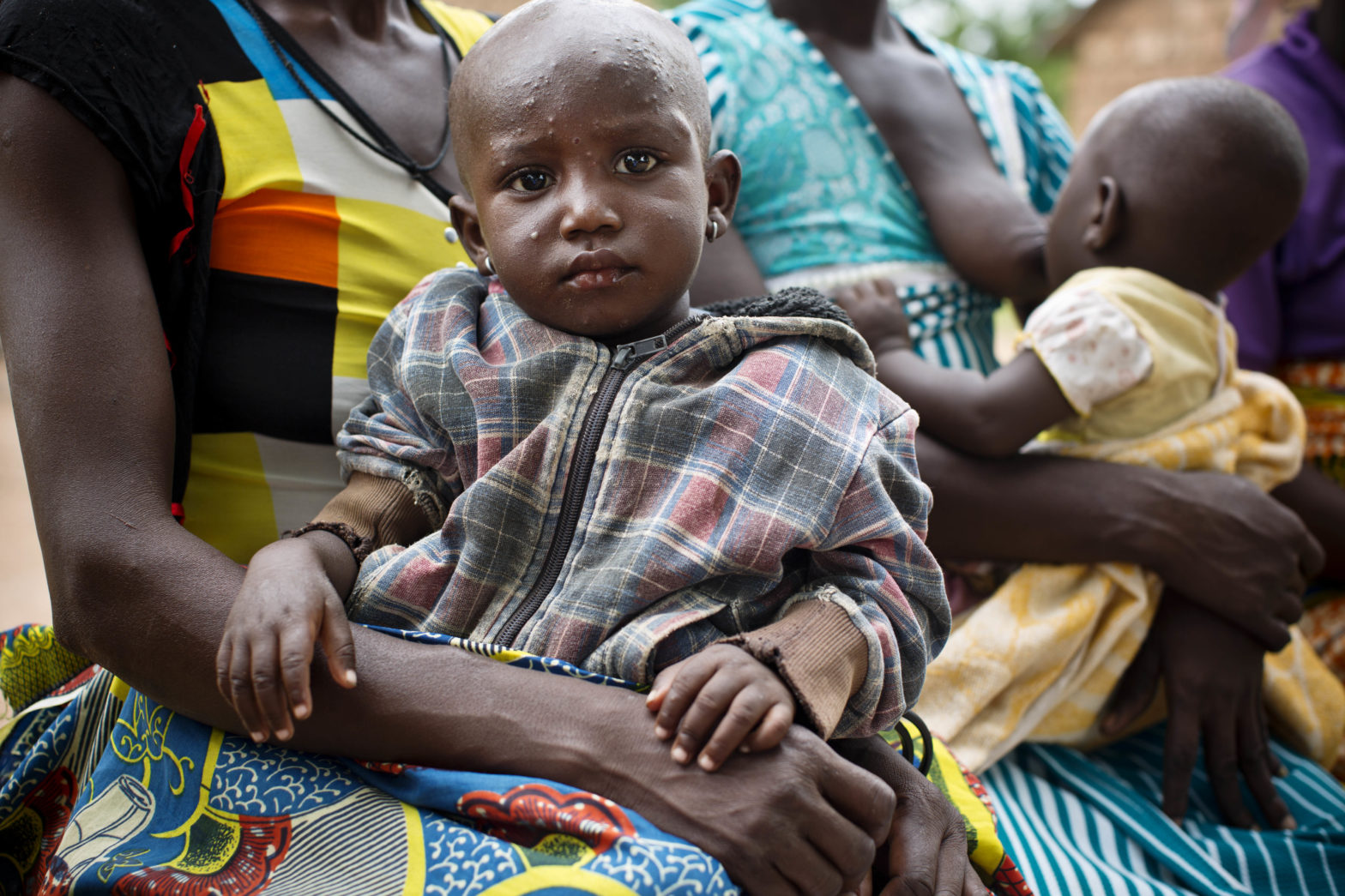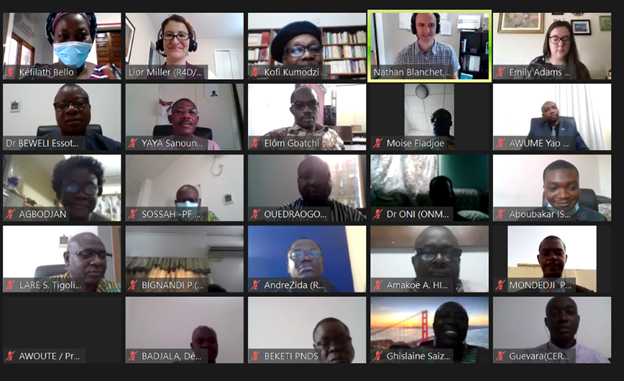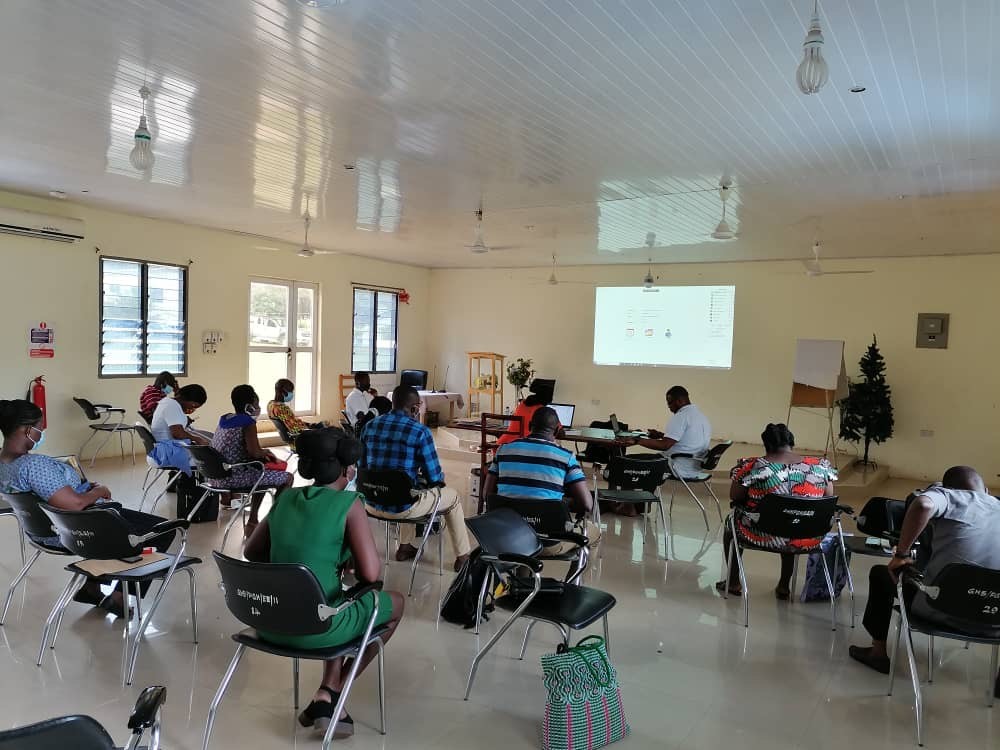Co-creation emerged as a promising approach for multi-sectoral stakeholders to validate systems challenges, discuss root causes, and create effective solutions together, while building trust and buy-in.
Category Archives: News
Implementing Guinea’s National Community Health Strategy
Authors: Amy Nye, Lior Miller, and Nathan Blanchet The successful rollout of Guinea’s National Community Health Strategy will require complex changes in health financing, human resources, and governance. To help Guinea independently translate, adapt, and sustain innovative ways to strengthen health systems, the Accelerator is facilitating dialogue with key partners and stakeholders to identify the …
Continue reading “Implementing Guinea’s National Community Health Strategy”
8 Countries Join the Virtual Collaborative on National Coordination of a Multi-sectoral and Multi-level Pandemic Response
Bahrain, Bangladesh, Ethiopia, Indonesia, Kenya, Mongolia, Nigeria, and Senegal will participate in a 6-month virtual collaborative focused on strengthening the leadership capacities and functions needed to ensure strong cross-sectoral and multi-level coordination to manage major health and socio-economic threats, such as COVID-19. The collaborative will also focus on building the foundation of more resilient and responsive health …
What does it take to coordinate multi-sectoral, multi-level pandemic responses?
Insights from the virtual collaborative launch webinar Authors: Dr. Uchenna Gwacham-Anisiobi (Associate, HSDF), Dr. Christine Ezenwafor (Team Lead, Public Health Advisory, HSDF), and Agnes Gatome-Munyua, Senior Program Officer, R4D COVID-19 has undoubtedly posed an enormous strain on health systems globally with over 230 countries, areas, and territories reporting cases[i]. Pandemic responses require multiple sectors, agencies, …
Continue reading “What does it take to coordinate multi-sectoral, multi-level pandemic responses?”
Call for Expression of Interest in National Coordination of a Multi-sectoral and Multi-level Pandemic Response Learning Collaborative
The Health Systems Strengthening Accelerator (Accelerator), implemented by Results for Development, in partnership with the Joint Learning Network for Universal Health Coverage (JLN) will launch a 6-month virtual collaborative focused on multi-sectoral, multi-level coordination of pandemic responses that will facilitate cross-country exchange on what has worked, and not worked, and generate practical guidance. The collaborative will focus on …
Webinar: Coordinating Multi-sectoral, Multi-level Pandemic Responses
The current COVID-19 pandemic has proven to be devastating for health systems globally. To slow the spread of the virus and to reduce its toll, country leaders must manage strong systems-focused, multi-sectoral coordination, planning, and monitoring. Countries are asking how to create and manage the cross-sectoral teams needed to mount a coordinated response to the …
Continue reading “Webinar: Coordinating Multi-sectoral, Multi-level Pandemic Responses”
Improving Health Systems Strengthening and Policy Research Capacities in Asia
The Accelerator has conducted a landscaping of promising health systems strengthening learning platforms and health policy and systems research institutions in Asia to strengthen the practical generation and translation of evidence into policymaking and practice.
Accelerator Mobilizes Local and Regional Experts to Support Ghana’s COVID-19 Response
COVID-19 presents a global threat for the health of the world’s population. Ghana is mobilizing a national effort to align resources and strengthen coordination to effectively respond to the threat. Under the leadership of the President of Ghana, the Government of Ghana (GoG) appointed a Presidential Coordinator for Ghana’s COVID response, to ensure a strong, …
Virtual Co-creation to Accelerate Progress Towards Universal Health Coverage in Togo
Author: Lior Miller Togo has embarked on the path towards achieving universal health coverage (UHC). However, several challenges persist, in particular strengthening the health system, optimizing health protection mechanisms, and identifying the institutional architecture to effectively support Togo’s journey toward UHC and produce sustainable improvements in health outcomes at the community level. On August 27 and September 1, the Health Systems Strengthening Accelerator and partner Centre en Recherche Reproduction Humaine et en Demographie (CERRHUD) will …
Virtual Peer-to-Peer Learning Workshop Supports the Implementation and Scale up of Primary Care Provider Networks in Ghana
Primary care provide network models can play a valuable role in advancing universal health coverage (UHC) goals through improved collaboration among providers, referral coordination, availability of services and user experiences. In November 2017, Ghana’s Ministry of Health (MOH), National Health Insurance Scheme, and the Ghana Health Service, in collaboration with technical partners from USAID’s Systems …
